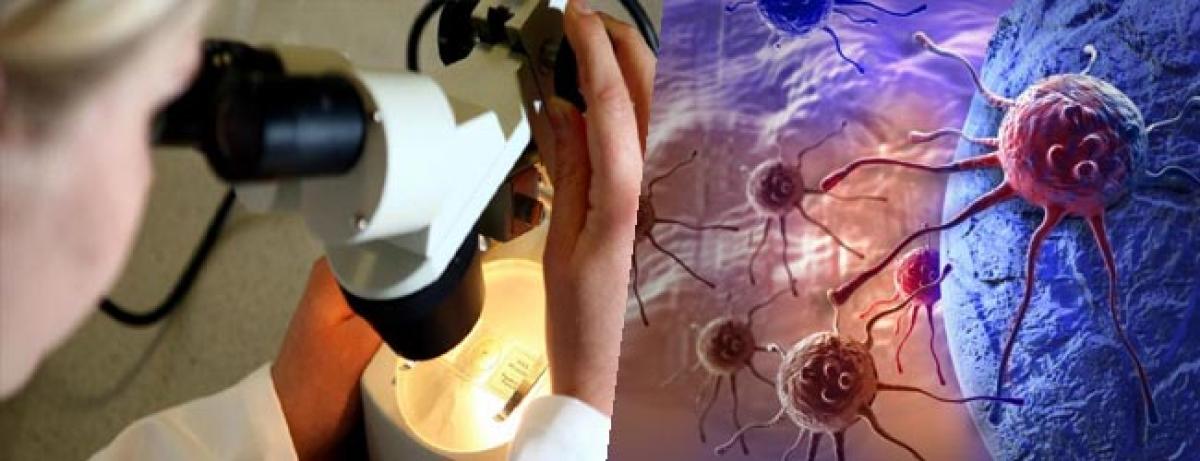Live
- Man held for siphoning Rs 8.14 cr in trading scam
- Don’t pressurise students for fees
- Almonds are a key to faster muscle recovery after exercise: Study
- No govt faced so much criticism than Revanth-led Cong in 11 months: Kavitha
- Balineni signed SECI agreement, says Chevireddy
- Infant kidnapped from Niloufer Hospital rescued, cops arrest 3
- Sunny Leone reflects on challenges and preparations for ‘Shero’
- Hyderabad Saree Festival 2024 kicks off in a grand manner
- Speed up Veligonda project works, CPM urges govt
- 10 career opportunities with a public policy degree
Just In

Cancer cells force neighbouring healthy tissue into helping with the disease\'s growth and spread, a new study has found, shedding light on how cancer cells and normal cells communicate with each other.
London: Cancer cells force neighbouring healthy tissue into helping with the disease's growth and spread, a new study has found, shedding light on how cancer cells and normal cells communicate with each other.
The findings showed that cancer cells use an altered gene to persuade healthy cells to release unique growth signals, which cancer cells can use to multiply but cannot secrete them.
Also, the faulty versions of the KRAS gene - often altered in cancer - can have an important effect on healthy tissues.
Normal KRAS makes occasional signals that asks a cell to divide, but when altered the gene becomes hyperactive and helps drive cancer cells' rapid and uncontrolled growth.
"What our research underlines is that cancer cells do not drive the growth and spread of tumours alone - they can bully their healthy neighbours into helping them,” said one of the researchers Chris Tape from The Institute of Cancer Research, in London.
Further, the altered KRAS gene also plays an important role in turning healthy 'stromal cells' -- connective tissue cells of any organ -- into cancer's allies.
In addition, the researchers discovered that healthy cells were responding with a totally new message - a message that doubled the capacity for KRAS to drive malignant behaviour in the cancer cells.
They also recognised well-known pathways that KRAS uses to communicate with neighbouring healthy cells.
“We have discovered exactly how cancer cells can persuade stromal tissue to secrete key growth signals, and in doing so opened up exciting new possibilities for treatment," Tape added.
The study, published in the journal Cell Scientists, showed for the first time that there is a communication loop with a cancer-causing gene controlling cancer via healthy stromal cells and opens up avenues for new approaches to cancer treatment.
“We have identified a key role played by the most commonly mutated gene in cancer in communicating with healthy cells. Blocking its effects could be an effective cancer treatment," explained lead author Claus Jorgensen researcher at the University of Manchester.
The team studied communication networks in cells from a type of pancreatic cancer called pancreatic ductal adenocarcinoma - one of the most deadly forms of cancer.
KRAS is altered in more than 90 per cent of pancreatic cancer, and in nearly 20 per cent of all cancers.
The team studied thousands of different growth factors, proteins, and receptors across different pancreatic ductal adenocarcinoma cells to see how signals were being transmitted.

© 2024 Hyderabad Media House Limited/The Hans India. All rights reserved. Powered by hocalwire.com







